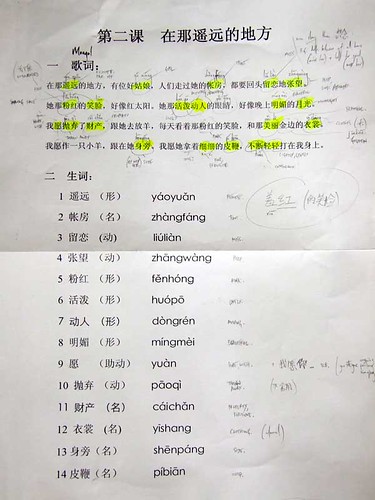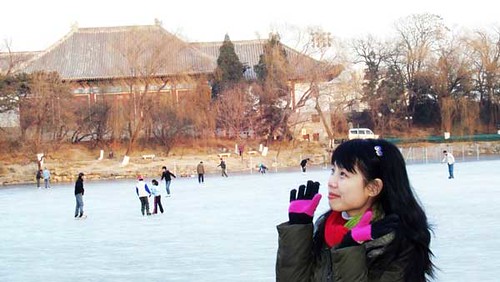In the heat of a Beijing July, I’ve ironically been a bit snowed under recently, but here is a question which has been on my mind for a while:
Is there genuine justification (i.e. the time couldn’t be better used elsewise) for the number of hours China’s students spend note-taking while tired teachers give lectures on communist theory in their compulsory ‘Political Thought’ classes?
Matilda told me the more-or-less of how many hours this is, across China:
Primary school: 1hr a week
Middle school: 2 to 3hrs
High school: closer to 5hrs
University: 2hrs a week
Grad students: 1 to 2hr
N.B. A student risks being kicked out of school is he doesn’t show up for these classes. For a breakdown of what those classes consist of in university, here’s a sneak peak I had once of the class schedule of a Chinese friend doing her Masters at Beijing’s Mining and Technology University (in hours per semester):
Marxist Philosophy Principle (32hrs)
Marxist Political Economy Principle (32hrs)
Introduction to Mao Zedong Thought (24hrs)
Introduction to Deng Xiaoping Thought (40hrs)
Military Training (32hrs)
Anyway you tot that first set of numbers up, it comes to comfortably over a thousand hours by the time a Chinese student graduates from university. A thousand! Think of how a student could spend that time instead:
1) He could watch 666 episodes of ‘Grey’s Anatomy’ on Youku.com and wonder at how much sex doctors have with their colleagues in American hospitals.
2) He could eat 7,347 packs of instant noodles.
3) He could mine 89,558,324 gold in World of Warcraft.
4) He could … oh I don’t know … study something else? Like Adam Smith! And the founding fathers of America! (Kidding.)
I will not be so cocky as to call this time wasted, but you all know I’m thinking it.
To understand communist ideology and how it has been applied by China’s leaders is, of course, to understand much of where modern China has come from. But this could surely be done in much less time. Leaving more time to study the other keystones which have built Chinese culture, state and society. A thousand hours could go a long way to ensuring the connection between China’s youth and the country’s long and rich history is not lost (as many Chinese intellectuals and, well, old people warn it is currently in danger of).
The problem, as I understand it, is not that China’s kids are being “brainwashed” (as much as many in the West seem to like the idea of China’s population being a homogenous Manchurian candidate in a Mao suit) but that many students attending these classes simply find them too boring to pay attention, and so zone out on a lot of hours they could better spend swotting the gao kao – or better still, getting enough sleep while swotting the gao kao.
Matilda described a typical homework assignment for one of these classes: take Marx’s saying “the road is long and with many obstacles” and apply it to different situations – the expected answer being how after last century’s revolutions China now has a bright future. My concern isn’t that this is communist propaganda so much that it sounds mind-numbingly boring. Matilda for one hates these “so so boring” classes, and would prefer to study her favourite philosopher Kant in them. And Tony tells me his politics teachers often use these classes to back-handedly (or up front) criticize current government policies.
Just some preliminary thoughts on a topic I’ve yet to really prod at…
*
UPDATE: Tony just emailed me with this:
haha, I sometimes skip those classes (military training only appeared twice in that semester thus having a bad grade). Students usually surf the net or do other reading in class i.e. just physically appear in the classroom. But then the final week is tough and I forgot almost everything after finished the exams. However, I guess one of the strong influences of political education is the dialectical thinking pattern of the Chinese people.
*
Oh, and Leonidas drives the point home:
These political classes are just for show, it doesn’t work. The students don’t take it seriously. The teachers don’t take it seriously.



